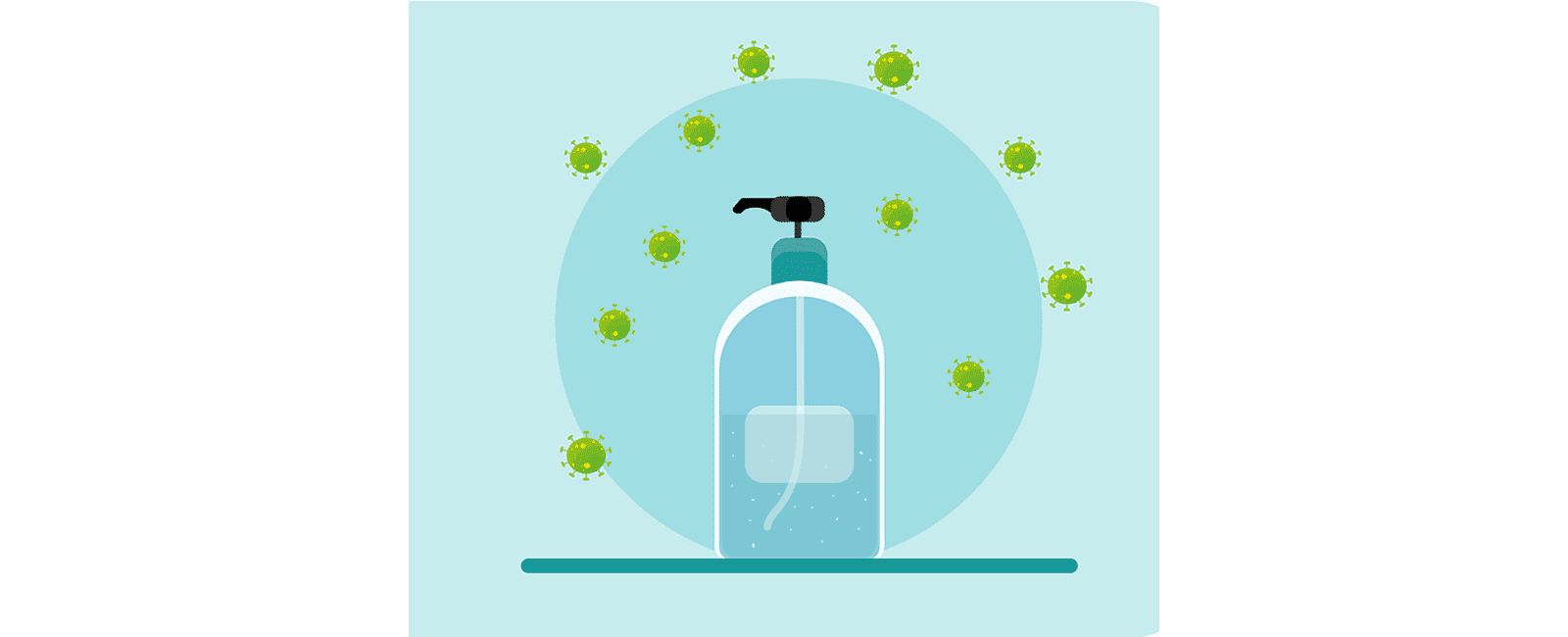What types of disinfectants are suitable for what?
Disinfectants are used to kill or at least inhibit microorganisms. It is necessary to distinguish between three types. Bactericidal disinfectants fight bacteria, a virucide kills viruses and a fungicide is used against fungi. So if you are looking for a disinfectant against coronavirus, make sure that the product is a virucide. Other disinfectants are ineffective against this virus.
Side effects and risk of poisoning especially for children
Those who use disinfectants will notice that the skin suffers. Good skin care is therefore essential. Prevent dry skin with a hand cream. Hand disinfection can even cause contact allergies and eczema. Therefore, disinfectants should be used only appropriately. Especially for children, the disinfectants available in private households pose a great danger. It is urgent to ensure that the products are not freely accessible. If disinfectants get into the hands of children, it can be very dangerous. Drinking disinfectants often leads to life-threatening symptoms of poisoning. In recent months, there has already been an increase in cases of poisoning in children due to the consumption of disinfectants. A good alternative to conventional products is water-based disinfection. There is no alcohol in these agents, which makes them more skin-friendly. Of course, you must also keep water-based disinfectants out of reach of your children. Here in the link a general poisoning example about it.

Disinfectant comparison - pay attention to the ingredients
Like any crisis, the time of the coronavirus is used by some companies to make a lot of money. The increasing demand for disinfectants is opening up a new market for many manufacturers. As a consumer, you should therefore pay attention to the ingredients of the disinfectants. Are products advertised as sustainable really virucidal and thus suitable for combating coronaviruses? This is important to note when buying, so as not to fall for scammers. This is because irregularities can also occur in the production of disinfectants. This is particularly true when companies from outside the industry enter a new market. Even in the field of water-based disinfection, unfortunately, manufacturers can be found whose products do not meet the prescribed requirements. Therefore, be sure to pay attention to the ingredients of the disinfectants and inform yourself in detail in advance about products that are new on the market. A detailed disinfectant comparison is worthwhile in terms of health. As a positive example, we would like to mention the sustainable disinfectant from BakuVir, 100% biodegradable, tested according to VAH and EU-approved PT1 to PT5.
Distinctive feature alcohol
A distinction is made between alcohol-based disinfectants and alcohol-free ones. First are “very sharp” due to ethanol and irritate the skin. As already described above, special caution applies here for children. The latter are water-based and ph-neutral. To produce them, you only need water, salt and electricity. The production requires highly complex machines and a lot of know how, therefore special attention has to be paid to the approvals, e.g. biocide approval (Article 95 listing) or EN1500 for hand disinfection.

